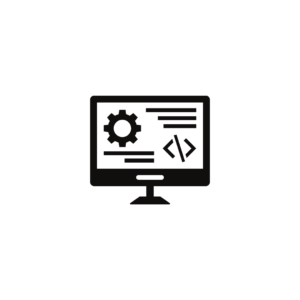Description
An Advanced Diploma in Radiology Technician program is designed to equip students with the skills and knowledge necessary to perform diagnostic imaging procedures in various medical settings. This program prepares graduates to work alongside radiologists and healthcare professionals, utilizing imaging technologies to aid in patient diagnosis and treatment.
Course Details:
Duration: Typically 1 to 2 years, depending on the institution and whether the program is offered full-time or part-time.
Eligibility: A high school diploma or equivalent is usually required; some programs may prefer candidates with background courses in health sciences or biology.
Mode of Study: The program generally includes classroom instruction, hands-on laboratory work, and clinical placements.
Curriculum:
The curriculum for an Advanced Diploma in Radiology Technician typically encompasses the following key components:
1. Introduction to Radiologic Technology
Role of Radiology Technicians: Overview of responsibilities, including operating imaging equipment and ensuring patient safety.
Healthcare Systems Overview: Understanding the structure and functioning of healthcare facilities where radiology services are offered.
2. Human Anatomy and Physiology
Anatomical Structure: Study of human body systems and how they relate to imaging techniques.
Pathophysiology: Basic understanding of disease processes that radiology technicians may encounter.
3. Radiographic Imaging Techniques
X-Ray Procedures: Learning the principles and best practices for performing various types of X-ray examinations.
Fluoroscopy and Tomography: Understanding advanced imaging techniques, including how to conduct and interpret images from fluoroscopic studies and computed tomography (CT) scans.
4. Radiation Physics and Safety
Radiation Principles: Basics of radiation physics, including how ionizing radiation is produced and its effects on the body.
Radiation Safety: Training in safe handling of imaging equipment and methods for minimizing radiation exposure to patients and staff (ALARA principle).
5. Patient Care and Communication
Patient Interaction: Skills for effectively communicating with patients, including explaining procedures and addressing concerns.
Comfort and Safety: Techniques for ensuring patient comfort and safety during imaging procedures.
6. Medical Imaging Equipment
Equipment Operation: Hands-on experience with various imaging machines, including X-ray, MRI (Magnetic Resonance Imaging), and CT scanners.
Maintenance and Troubleshooting: Understanding routine maintenance procedures and basic troubleshooting for imaging equipment.
7. Imaging Anatomy and Techniques
Understanding Imaging Modalities: Comprehensive review of imaging modalities such as MRI, ultrasound, and nuclear medicine.
Image Quality and Interpretation: Education on how to assess image quality and recognize normal versus abnormal findings.
8. Ethics and Legal Aspects of Radiology
Professional Ethics: Understanding ethical responsibilities and standards of practice in radiologic technology.
Legal Issues: Familiarity with regulations governing medical imaging, patient rights, and informed consent.
9. Clinical Practice
Hands-On Training: Opportunities for practical experience in hospitals or clinics, applying the skills learned in the classroom.
Interdisciplinary Collaboration: Emphasis on teamwork with radiologists, nurses, and other healthcare professionals.
10. Continuing Education and Professional Development
Ongoing Learning: Importance of staying current with advancements in radiologic technology and best practices in patient care.
Certification Preparation: Guidance on preparing for certification exams, which are often required for employment.
Assessment:
Assessment methods may include:
Practical Skills Evaluations: Demonstrating competencies in performing imaging procedures and patient interaction.
Written Exams and Assignments: Testing theoretical knowledge through quizzes, essays, and projects.
Clinical Performance Assessments: Evaluations during clinical placements to assess hands-on skills and professional behavior.
Career Opportunities:
Graduates of an Advanced Diploma in Radiology Technician can pursue various roles, including:
Radiology Technician: Performing diagnostic imaging procedures in hospitals, clinics, and medical offices.
CT or MRI Technologist: Specializing in specific imaging modalities such as CT or MRI.
Radiation Therapist: Further education can lead to working in radiation oncology, delivering therapeutic radiation treatments.
Medical Imaging Quality Control Technician: Ensuring imaging equipment is maintained and functioning properly to guarantee accurate results.
This advanced diploma program develops the essential skills and knowledge necessary for success in the radiology field, contributing to excellent patient outcomes and effective healthcare delivery. If you have any further questions or would like more specific information about the program, feel free to ask!









